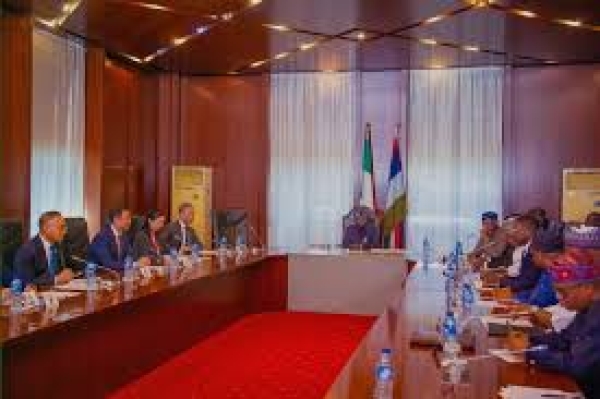The Chinese government says it supports Nigeria’s request to increase its currency swap line and its plan to issue panda bonds.
Wang Yi, Chinese foreign affairs minister, spoke to journalists after meeting with President Bola Tinubu at the presidential villa on Thursday.
A currency swap line is an agreement between two central banks to exchange currencies while panda bonds are securities denominated in the Chinese Yuan (renminbi) and issued by a foreign company in China.
China and Nigeria recently renewed their currency swap agreement, valued at 15 billion yuan (approximately $2 billion), to enhance trade and investment between the two nations.
The agreement, valid for three years, aims to strengthen financial cooperation and promote the use of both currencies in bilateral transactions.
Speaking to journalists on Thursday, Yi said the currency swap agreement “shows how well we have carried out our financial cooperation and sustained its momentum”.
“As with regard to Nigeria’s wish to increase the line of the currency swap we will favourably study and consider the issue, our cooperation is going well in many ways, in terms of finance,” the Chinese minister said.
“For instance, we welcome the panda bonds to be issued. We welcome Nigeria to issue panda bonds in China, because we have full confidence in Nigeria’s credibility.
“And by issuing panda bonds, Nigeria will gain good revenue and the safety is guaranteed through financial support. We are working to contribute to Nigeria’s infrastructure development, in particular, railway.
“Just a few days ago, Chinese banks supported, through financial funds, the building of phase three of the railway modernization project, and it has been delivered. So there are many details that are taking place between our cooperation.”
On January 8, the China Development Bank (CDB) granted a loan of $254.76 million for the construction of the Kano-Kaduna railway project in Nigeria.
The CDB said the construction is being carried out by China Civil Engineering Construction Corporation (CCECC), with financial backing from the bank.
[TheCable]


